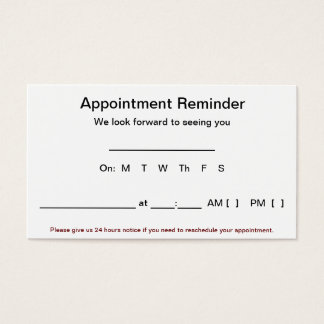For example, I was working with a physician group that thought they couldn’t renegotiate their contact with a large payer. They were losing money on those patients but thought they were stuck. Wrong. We were able to successfully renegotiate a stronger contract.
If you feel stuck in a lousy deal with your payers, you can renegotiate. Here are six steps to renegotiate your contracts and improve your revenue.
Do your homework
Start by locating your contracts and, if they don’t already have one, give them a designated home in your office. If you cannot locate the agreements, request copies from payers.
Gather all your contracts, review the terms, and know the effective dates of your contracts. Study your payer mix and learn who is your largest payer. Create a database where you can track the terms of every contract and when each is up for renewal. Keep copies or detailed notes of all interactions with your payers, including the last time you renegotiated the contract.
Payers are hoping you have so many payer contracts and too little time to review all the agreements, especially at small practices that don’t have a dedicated team to review them. They are counting on you to not be diligent. That gives them the opportunity to skimp here and there. Don’t let your payers cheat or hoodwink you.
Warning: This will be a time-consuming process.
Know your fee schedule
Anticipate that each payer will establish speed bumps to slow down your claims process. Some payers might require different procedures to submit claims, such as the use of a web portal, special emails, and the like. They will use vague language to give them wiggle room—and the opportunity to deny claims. Beat them at their own game.
Create another database for your most common codes separated by each provider. Note how each code should be submitted. Make sure you capture all of them. Building this central repository will require time upfront, but it should ultimately speed up the daily claims process, reduce the number of days bills are in accounts receivable/accounts payable, lower the volume of denied claims, and make it easier should you to resubmit.
Let the games begin
Once you have assembled all of your data, you can compare each payer to one another. Now you have the information you need to begin the process of renegotiating your contract with a specific payer.
Initiate the process according to the terms of your agreement but do so with a formal notice. Pick a payer that you think you’ll be able to get the desired changes from. It might be based upon the fee schedule, the time to the end of the contract, or the volume of business you do with them. I would recommend starting with payers that offer the lowest rates and those with the least amount of time left on the contract.
Research who you should send the notice to and ask for confirmation of receipt. I would recommend sending your notice to as many people at the payer’s organization as possible.
Remember: These payers aren’t your friends and being friendly won’t yield the desired results. You must approach this process without fear.
Hold the line
Now that formal negotiations have begun, hold the line. Remember, negotiations start with a “no.” Payers will push back and even refuse to open up talks. Press on, and don’t give up.
Stay focused on your mission and purpose. The key to any successful negotiation is knowing what you want. Be specific with your desires. Don’t let their fear tactics intimidate you, and always be comfortable exercising your right to veto.
Begin with the end in mind.
Know what you want—and the outcome you seek—even before you start the renegotiation process the. You’re renegotiating these contracts so that you have capital to continue to provide excellent care to their beneficiaries. If the payer isn’t moving the needle enough, don’t be afraid of walking away. Remember, the payer sold a contract to the patient or their employer, and they must fulfill the terms of that contract. Their contract with you helps them meet their contractual obligations to the other party.
Know what you want and why you want it. Plan your negotiation steps carefully and accept that you might need to change things as the talks progress. However, you should understand what you want from a specific negotiation event, meeting, or email. It might be another meeting with someone else, an acknowledgment of your proposal, or acceptance of your offer, but you must be explicit on this issue.
Seek help when needed
If you ever feel you’re in over your head, ask for help from someone who isn’t as emotionally invested as you are, such as a negotiation coach. Having someone with experience and a fresh set of eyes on your talks can provide insight and propel your success. More importantly, bringing on someone who is not as emotionally involved to help you through the negotiation will help you stay calm and obtain the best results for you and, ultimately, your patients.
15% Off All Products
Medical Office Supplies
$28.00
$44.05

$60.05
$1.50









No comments:
Post a Comment